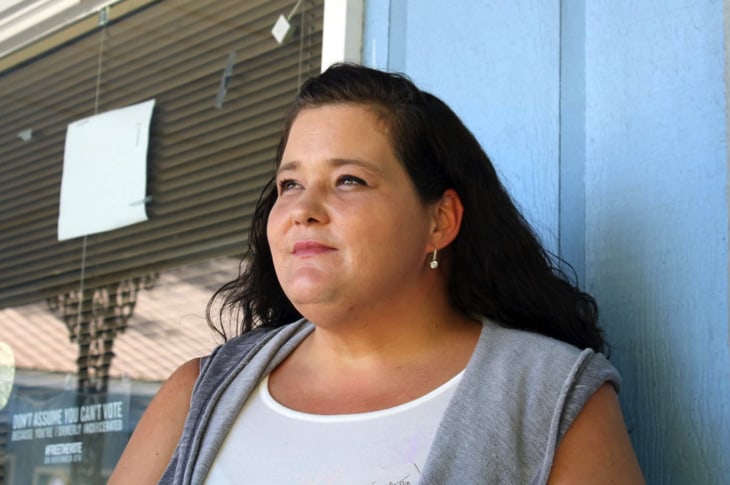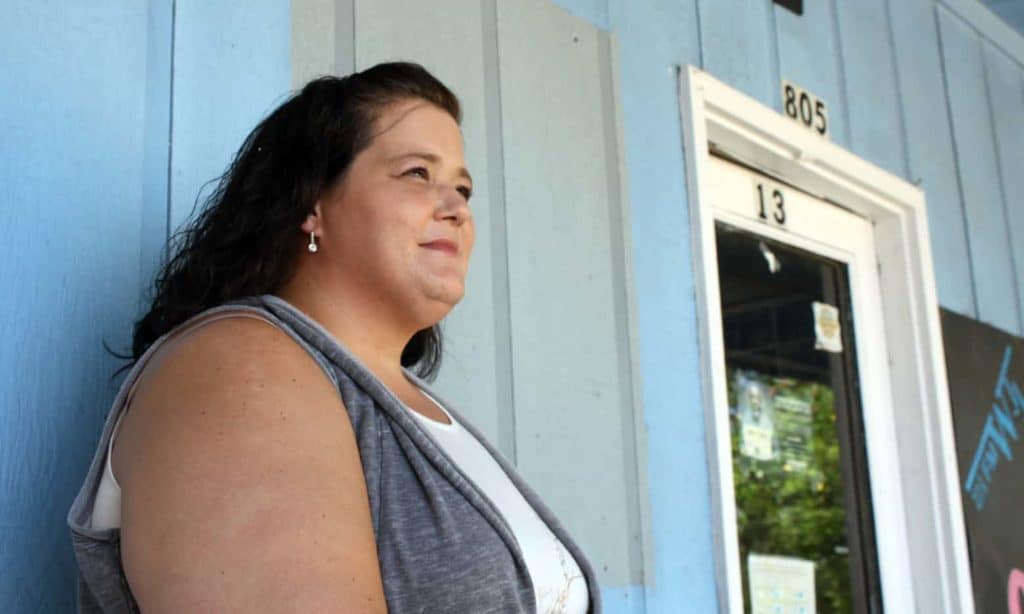
When looking at voting patterns and determining which states are “red” or “blue,” politicians are able to figure out where they’ll have the edge over their opponents. But would they still have that edge in states where the disenfranchised who have lost their voting rights were suddenly able to contribute to the electoral process? Such laws exist in some states, including Alabama, Nevada, Tennessee, and six other states, that prevent people from voting and it’s essentially based on their wealth or lack thereof.
One person who currently does not have the right to vote is Randi Lynn Williams, a 38-year-old resident of Dothan, Alabama who was convicted of fraudulent use of a credit card in 2008. She was on probation for two years until she served time in jail for a few months in 2011, at which point she was released. For most people in other states, completing time served would signal her ability to vote again, but in Alabama that isn’t the case.
“When all this started, the county told me I lost my right to vote and I don’t get my vote back until I pay all my fines and costs and get off probation and all that,” Williams said.
In Alabama and eight other states, a law exists which states that any person who still has any outstanding court fines, legal fees, or victim restitution to pay off is not allowed to vote. Despite the stark similarity to the poll tax, which the Constitution banned in 1964, these laws are upheld in these select states and it’s exactly what’s preventing Williams and thousands of other people from voting.
Here’s why it’s wrong: the poll tax was a fee imposed on individuals, no matter what their income was, before they were even allowed to register to vote. The law for this poll tax was rolled into the Jim Crow laws, which purposely excluded newly free African-American people from their access to certain rights. Since the black people were inherently poor at the time this poll tax was imposed, they were among those that couldn’t vote and had no voice simply because they were not wealthy enough. That’s why it’s so wrong to still impose a similar law, which prevents those who are not wealthy enough to pay their fines off in one lump sum from voting until they can.
According to the Sentencing Project, a nonprofit based in Washington D.C. working towards criminal justice reform, there are 286,266 disenfranchised felons in Alabama alone and more than half of them are black. This is alarming because black people make up only 26.8% of residents in Alabama, meaning there are stark disparities between the number of people of color that are poor and convicted of crimes than there are white people with the same situation.
“Denying returning citizens their fundamental right to vote because they are too poor to afford fines and costs unnecessarily excludes them from the democratic process and impedes their rehabilitation,” said Randall Marshall, executive director of the American Civil Liberties Union of Alabama. “The right to go to the polls and vote should never ever be dependent on one’s financial status.”

Williams’ fees alone amounted to over $11,500 in debts that she needed to pay to the court, less than half of which were restitution fines to be paid to the victim. Since she is a disabled person, a recovering drug addict, and likely wouldn’t be able to find work anyway because of her criminal past, she relies solely on the $772 she receives each month from social security. Six years later and she still has over $9000 in debt from that sole conviction, and she believes that she’ll never be able to vote again because the interest will keep accruing and ensure that she never pays off her debt.
With a non-violent offense, people in other states would still be allowed their right to vote upon release, but many people are calling this targeting of disenfranchised people in Alabama and the handful of other states the “poll tax to the extreme.” In addition to preventing former felons from being able to move forward, they’re also not able to participate in the electoral process and add their voice to those of the voters.
What makes this process even more unethical is the fact that studies have been released showing that judges in Alabama often don’t take into account the convicted person’s ability to pay fines when saddling them with the debt. The Constitution states that courts must account for a person’s indigency before sentencing them to thousands of dollars they can’t pay, but oftentimes those in Alabama fail to do this.
You can help fight unjust laws like these by taking the issues up with your representatives, whether or not you live in the states in question, and contributing to nonprofits like the Sentencing Project that devote their time, money, and energy to righting these wrongs in the criminal justice system.


